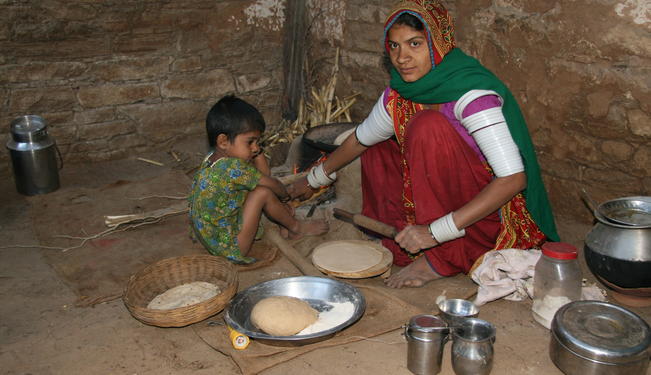Though the creation of Millennium Development Goals has proved successful on certain fronts, specifically in increasing access to water and healthcare in some countries, many of the world’s poorest people continue to suffer from problems including unstable food and fuel prices and food shortages. It is crucial to evaluate the impact of existing strategies on reducing poverty.
Background
In 2000, the adoption of the Millennium Development Goals (MDGs) was hailed as a success in poverty reduction efforts. These goals include eradicating poverty and hunger, universal primary education, gender equality, child health, maternal health, combating HIV/AIDS, environmental sustainability, and global partnership for development.
The 2011 progress report on the MDGs paints a mixed picture. On the positive side, the 2015 global estimate of poverty is 15%, well below the 23% target. A sharp reduction in poverty in East Asia (China, in particular), supplemented by gains in India, contribute to this outlook. In Sub-Saharan Africa, joint efforts of international partners, governments, civil society, and public health workers have helped effect substantial improvement by making treatment for HIV, tuberculosis and malaria accessible to millions of patients. Access to clean drinking water and a renewed focus on maternal and child health has also helped reduce worldwide deaths attributed to disease.
However, income inequality continues to broaden unabashedly with the growth trajectory of developing nations. Volatility in food and fuel prices, food shortages, environmental degradation and economic shocks further obstruct development. Furthermore, there is disturbing evidence that the conditions of the poorest sections is only getting worse. The most vulnerable are disadvantaged compared to others below the poverty line where access to limited resources of sanitation, education, food rations, public health and clean drinking water are concerned.
Meanwhile, it is unclear which poverty reduction strategies are most effective. Development aid from rich countries to poor ones has become the center of an academic debate (Sachs vs. Easterly) where doubters argue that aid is ineffective, encourages perpetual dependence and undermines local institutions. Microfinance, some believe, has not been shown to actually lift people out of poverty. Information and Communication Technology strategies – such as M-PESA in Kenya – have been gaining more support, but they also have prominent critics.
With poverty reduction still an important topic, it is worth pausing to consider the progress that has been made and evaluate the effectiveness of each strategy.
Why is Poverty Important?
According to the World Bank, nearly 1.3 billion people on our planet live in extreme poverty. If the poverty line is raised from US $1.25 income per day to $2, that number doubles. Approximately three quarters of the world’s poor reside in Sub-Saharan Africa and South Asia.
For more than 10 years, Fair Observer has been free, fair and independent. No billionaire owns us, no advertisers control us. We are a reader-supported nonprofit. Unlike many other publications, we keep our content free for readers regardless of where they live or whether they can afford to pay. We have no paywalls and no ads.
In the post-truth era of fake news, echo chambers and filter bubbles, we publish a plurality of perspectives from around the world. Anyone can publish with us, but everyone goes through a rigorous editorial process. So, you get fact-checked, well-reasoned content instead of noise.
We publish 2,500+ voices from 90+ countries. We also conduct education and training programs on subjects ranging from digital media and journalism to writing and critical thinking. This doesn’t come cheap. Servers, editors, trainers and web developers cost money.
Please consider supporting us on a regular basis as a recurring donor or a sustaining member.
Support Fair Observer
We rely on your support for our independence, diversity and quality.
Will you support FO’s journalism?
We rely on your support for our independence, diversity and quality.







